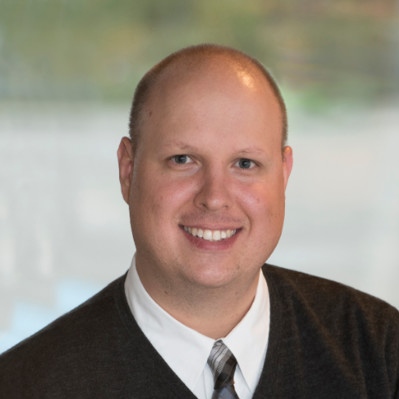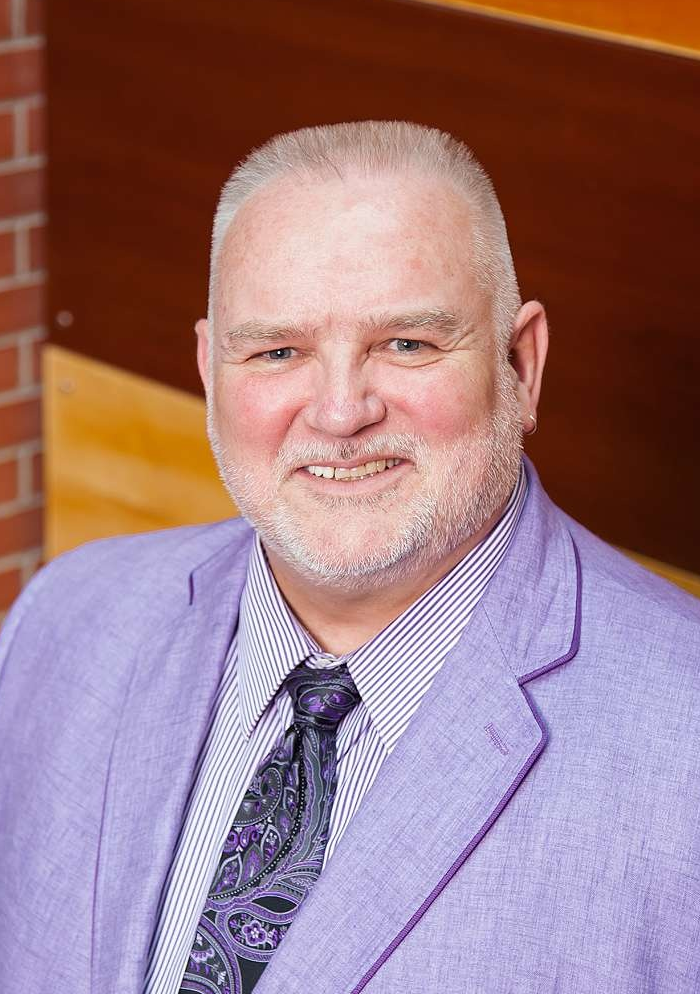An Interview with Douglas Bartholomew-Saunders
An Interview with Douglas Bartholomew-Saunders
By: Rob Kirsic
February 2024
Following 45 years of management and executive experience in government operated and funded health and human services, Douglas Bartholomew-Saunders uses his expertise to provide strategic advice to government, not-for-profit and for-profit organizations. His experience spans service system management, multi-system integration, strategy and policy development, systems expansion, and oversight design and implementation within the human services and includes considerable understanding and expertise in diversity, equity, and inclusion.
His recent strategic advisory work includes: collaborating with an Ontario social services organization develop its 10-year Early Learning and Child Care Service plan; advising an Ontario temporary shelter on managing external pressure to relocate its facility and operations; advising two Ontario based social service organizations on fiscal viability in an environment of declining funding and donor bases; leading an Ontario municipality through the introduction of integrated service access and delivery to improve client service and reduce multiple intakes; leading an Ontario immigration settlement community to settle and provide multiple services to 1,800 immigrants on an emergency basis in one year; and introduced new thinking and concepts of care into family medicine through the College of Family Physicians of Canada to address the unique medical needs of the LGBT+ communities in partnership with a prominent Ontario Family Physician (1980s/90s).
In 2020, OMSSA awarded Douglas the Patti Moore Human Services Integration Award for excellence in integration and human services leadership.
He is also the recipient of the 2023 OMSSA Lifetime Achievement Award. OMSSA sat down with Douglas for an interview to discuss human services, his career, and involvement with OMSSA.
This interview has been edited and condensed.
OMSSA: Human services delivery between more than one level of government brings challenges and opportunities, especially as governments and priorities change over time. In your experience, what should human services staff know and think about when it comes to the relationship between the province and municipalities as it relates to the delivery of human services?
Douglas Bartholomew-Saunders (DBS): Over the 45 years of my career, I have worked both at the provincial and the municipal levels, which gave me some first-hand insights, and perhaps even some unique insights, into how the levels of government can and should work together. And I mean, can and should. Relationships change and they ebb and flow with elections, so things don’t always align. Depending on where you live in this province, there can be as many as four levels of government which can make that alignment difficult. The greater the number of levels, the more likely misalignment can happen.
Working with various levels of government is a complex and sometimes difficult task to balance all the requirements, goals, expectations, and outcomes that everyone is requiring. Especially if your primary focus is meeting the needs of and maintaining the primary focus on the client who depends on the services.
Often, when you have multiple levels of government working together, there is too much focus on what the legislation, regulations and directives say without analyzing the impact on the user of those services. What are the regulations directing us to do? What is the policy? And how do we turn this into an operational organization? And we forget that none of that would matter if there weren't these people, these clients who need the service?

OMSSA has worked with all parties in government. We know that an election can completely change legislation, the structure of the ministries, philosophies and directions of government, and, we have successfully delivered the services at the same time. We have delivered position papers in all sectors, advocating for service delivery changes, and challenging various governments about flaws in the system, while maintaining our solid working relationships with those governments. OMSSA has been that unified voice and needs to continue to be such.
We've been able to adeptly challenge the government respectfully on those policies, and we have been successful many times in making change in policies within Ontario. One of the greatest strengths, when it all comes together well, is that we, as an Association, have been able to truly represent the folks that our Members serve, and influence the policies and directions of the province, and to some degree the federal government.
OMSSA: Speaking of OMSSA, you served the Association in various capacities to collaborate with other levels of government. In your opinion, and based on your experience with OMSSA, what are some of the priorities the Association should focus on in the next few years?
DBS: Globally, and right here at home, we are struggling with an environment that lacks the equilibrium we expect. To do the work we do requires a certain sense of balance that has been lacking. I think for the past three years, and probably for the foreseeable future, we will likely continue to be in uncharted territory, largely ignited by the global pandemic.
But, in the face of the pandemic, we have demonstrated that we can turn on a dime to reconfigure work locations, service delivery channels, service expansions, to respond to unprecedented demands like the homelessness crisis that we could not have predicted. We have also created new services we might not previously have delivered in response to that pandemic.

All these items challenge all that we hold dear in terms of social supports and the social safety net. We have an inability to recruit and retain staff in many sectors, particularly child care. The inability to recruit staff threatens the future of the service and consequently the ability of parents to continue to work without care for their children.
There is a rapid increase in the numbers of older adults for whom our society has not even begun to prepare for by adding beds to long-term care, community day programs or home care, and so much more. Those older adults are increasing in numbers within shelters and the homeless population where their frailty and age make them much more vulnerable. All of this begs the question of whether our systems can withstand the demand or will potentially collapse in the future.
Increasingly, expert staff in some provincial ministries and some municipalities are less able to do their jobs, designing responsive systems, providing well founded advice and delivering services in the face of politicians and the public, whether knowledgeable or not, whether intended or not, attempting to be hands-on in the operations rather than setting policy and allowing staff to get on with the job.
Add to all of that, the increasing use of social media, where anyone and everyone has an opinion, often, and sometimes unintentionally, uneducated opinions, place OMSSA Members in positions of public criticism, spending too much time responding to political questions about social media comments and drawing time away from the very real needs of the client.
So, to the heart of your question, what should OMSSA do or cast its mind to?
I think back to even my time as the President, and even before that, to the research the Association did on solutions to issues is something that OMSSA should invest in heavily. Documenting and producing position papers to senior levels of government on how the Association and its members can collaborate to inform public policy and program design, advocating for collaborative and inclusive approaches to our goals. There's a dearth of challenge to the current environment that would allow us to simply say, "we have done this research, here is what it looks like, here's what we think it could look like in Ontario. These are the policies that we need to support it. We think you should go in this direction." That's what we used to do and need to be doing now, more than ever.
I think the other real real benefit that OMSSA should promote is that our members are diverse, highly gifted and never short of ideas and answers to problems. I think we need to establish ourselves as key players at the table offering research, particularly international research and increasing service integration. Equally or perhaps more importantly, we need to demonstrate financial plans that are not solely requests for more money. Given the tax rates we currently face, more money isn’t always the answer. We need to offer redesigned programs that use financial resources more wisely and encourage governments to prioritize needs over wants. It may require putting some shiny project we want on hold for a couple of years but will allow us to reallocate fiscal resources to address the critical needs we are facing and, ultimately, benefit the client.

I think OMSSA is in an ideal position to do what it really does best, and that is to bring people together and figure out what the response is. It is also about influencing the province to listen to us again, and that will be tough given the current government environment, but it is something that is necessary.
OMSSA: Looking back on your career to date, are there one or two achievements that stand out to you? What are they and what makes them stand out to you?
DBS: An accomplishment never actually belongs to one person, so anything that I might be able to claim some ownership of really isn't just me. It's about the people who were there with me and who joined the vision and said, yeah, let's integrate the services, see people as whole individuals and provide a holistic service.
I would highlight the work that I've done in human services integration. Not only have I integrated services, or led the integration, or worked with people who agreed that integration was the right thing to do, but I think among the reasons I was often requested at Queen’s Park to sit on various tables was because I brought that integrated approach with me to almost everything I did. The only way I can see providing services to a client is if you take all of those components, bring them together, integrate them and recognize that the client doesn't often just need housing, childcare, or social assistance. Clients are whole people, yes, a single person but often with multiple needs that should be addressed in their integrated impact on that individual rather than being looked at through individual services streams based on the definition of funding lines.
I am a strong proponent of diversity, equity, and inclusion (DEI) not only because I am a member of the LGBT+ community but also because I’ve seen the compounding effects of poverty, homelessness, food insecurity and other issues when they intersect with marginalized communities. When I talk about (DEI), I'm talking about Indigenous Peoples, people of color, different religions, ethnicities, the LGBT+ communities as so much more. We are a better country by virtue of the diversity that we have in this country through immigration and the understanding that diversity presents itself in so many different ways. I think it is incumbent upon all of us to help one another understand that DEI is not synonymous with devolution of Canadian society or what it means to be Canadian. It is an enhancement of Canadian society and, given the decline in the country’s birthrate, Canada and its future depends on DEI, especially through immigration.
I felt very honored to be asked to provide advice on the basic income pilot when the Province was trying to build it. They realized that, without some people who were deeply embedded into the system of poverty or the workings of poverty, what they were designing wasn't necessarily going to be of any value to them. As part of my invitation, I brought together some other commissioners who provided some ground level advice on basic income. I think that was a real moment where I thought, "Gee, maybe I do have some influence in this service system."
I'm also proud to say that here in Waterloo Region, during my time as the Commissioner, we introduced a comprehensive housing strategy, the basis of which was to take our housing stock (50 – 70 year old buildings) with large properties surrounding, and, through refurbishment, rebuilding and adding more units to existing properties, we could add many more units and provide housing to the growing numbers of those who needed it. We all know the answer to homelessness is vastly increased numbers of supportive housing and deeply affordable units, not more shelters. Without increasing the housing stock, the numbers of homeless will continue to grow. The cost to the systems of health and human services for the homeless is ultimately much higher than housing those same individuals.
If I were going to use the word proud, I think I would attach it to my involvement in the provincial Social Assistance review and reform. I was truly honored to be asked to be involved. We challenged ourselves to put our issues on the table in a way that the province could hear us and then really wrestled together with what we could co-create that would be to the benefit of the people who receive a monthly allowance, reduce the administrative burden on staff and not increase the cost of the program to the taxpayer. That work was well on its way to resulting in a system that would have been far preferable to what we have right now. Sadly, that work came to a halt for whatever reason. Even more sadly, the social assistance system and the social safety net in general, are recipes for long-term existence in poverty.
That is why I would say OMSSA’s role in the complexity of the current environment and into the future is to bring together that singularity of thinking where the voice is on behalf of all social services and clients in Ontario to influence the direction of policy in the province that will result in a social safety net that doesn’t keep people living in poverty.
OMSSA: Is there anything else you would like to share with our members that I did not ask about?
DBS: There is one thing I would like to say, and that is a hearty thank you. Forty-five years in total, 23 of which were in municipal services and attached to OMSSA. I think my first meeting with OMSSA was in 2001, but I want to thank everybody for 23 years of collegial collaboration, shared values, healthy debate, innovative directions, and professionalism.
I'd also like to thank everyone for the opportunity to work with some of the most gifted and talented minds in this province. I want to thank them for allowing me the privilege of leadership within OMSSA during the years that I was on the Board. And, finally, I would like to thank everyone for this honour. It is an honour that I don't know that I truly deserve, but you have chosen to bestow it upon me, and for that I give my heartfelt thanks.
OMSSA: Thank you, Douglas.
About the Author

Rob Kirsic is the Communications and Member Engagement Manager with OMSSA. Rob started with OMSSA in 2021 and has over 15 years of communications and public relations experience in the private, public, and not-for-profit sectors.
Blog categories: Interview, Leadership, Human Services, Human Services Delivery, Integration, Diversity, Equity, Inclusion
